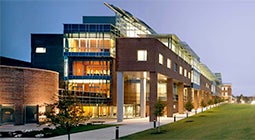Spectroscopic Methods in Biology and Biotechnology: A Survey with Applications
Spectroscopy is the study of how different wavelengths of light interact with matter. It is one of the most important tools available to Biology, Chemistry and Biotechnology to characterize and measure materials including: proteins, DNA, and small biologically active molecules. This course will present several spectroscopic methods and some of their current applications in the Biological Science, Biotechnology and clinical settings: today Absorbance in ELISA assays is used to determine whether people are mounting an immune response to COVID-19; Fluorescence is used to measure protein aggregation and fibril formation (important in Alzheimer disease); Fourier-Transform Infrared is used in the recycling of plastics.
Sessions:
- UV-Visible Absorbance: micro-volume and high-throughput methods; ELISA (enzyme-linked immunosorbent assay) tests
- Fluorescence measurements with thioflavin T as a probe to monitor protein fibrils
- Fourier-Transform Infrared using Attenuated Total Reflectance with application to recycling of polymer materials (plastics)
Contact:
Joel Morgan, PhD
Director Analytical Biochemistry Core Facility
Shirley Ann Jackson, Ph.D. Center for Biotechnology and Interdisciplinary Studies
Rensselaer Polytechnic Institute
Email: morgaj3@rpi.edu

